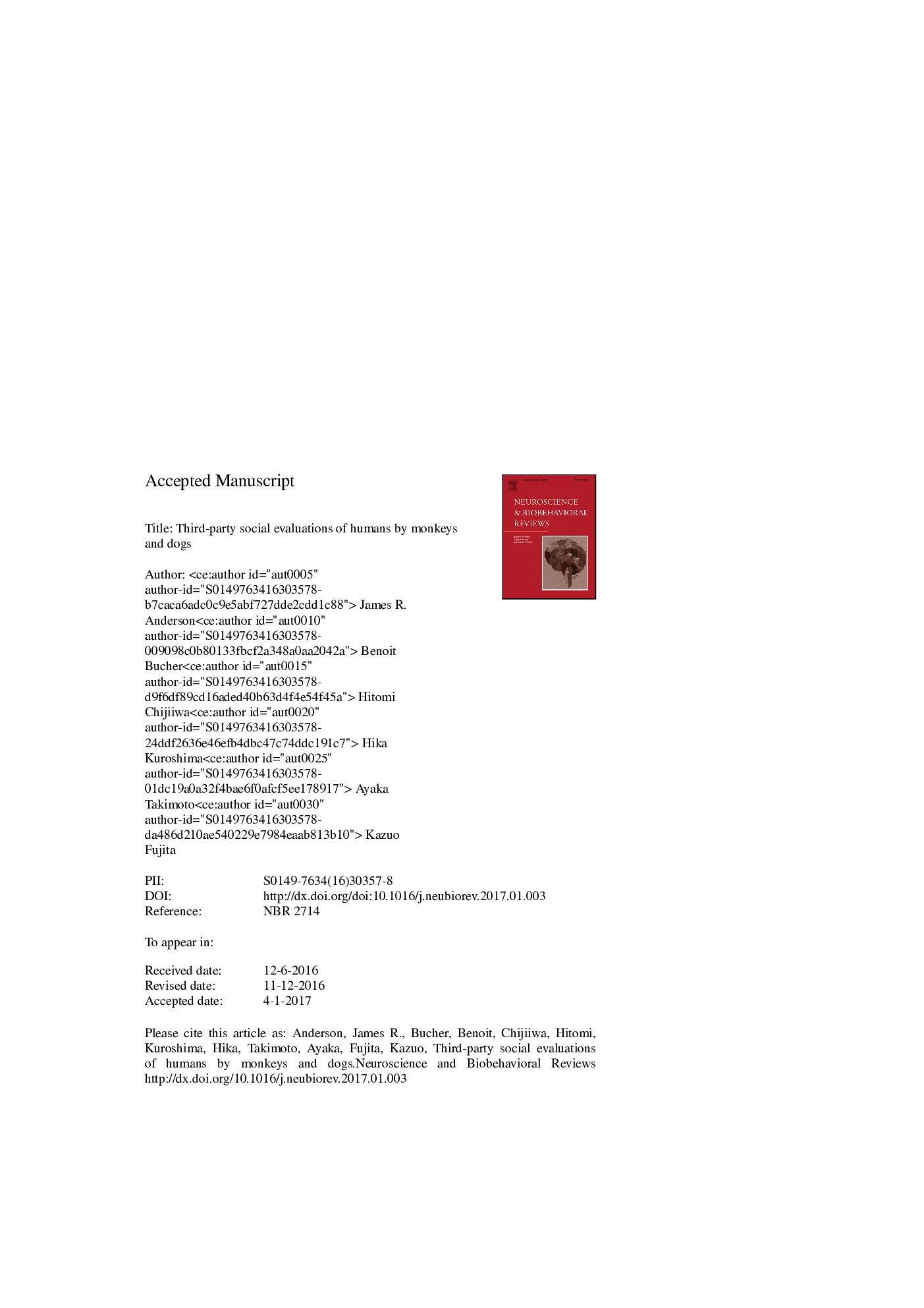| Article ID | Journal | Published Year | Pages | File Type |
|---|---|---|---|---|
| 7302590 | Neuroscience & Biobehavioral Reviews | 2017 | 24 Pages |
Abstract
Developmental psychologists are increasingly interested in young children's evaluations of individuals based on third-party interactions. Studies have shown that infants react negatively to agents who display harmful intentions toward others, and to those who behave unfairly. We describe experimental studies of capuchin monkeys' and pet dogs' differential reactions to people who are helpful or unhelpful in third-party contexts, and monkeys' responses to people who behave unfairly in exchanges of objects with a third party. We also present evidence that capuchin monkeys monitor the context of failures to help and violations of reciprocity, and that intentionality is one factor underlying their social evaluations of individuals whom they see interacting with others. We conclude by proposing some questions for studies of nonhuman species' third party-based social evaluations.
Keywords
Related Topics
Life Sciences
Neuroscience
Behavioral Neuroscience
Authors
James R. Anderson, Benoit Bucher, Hitomi Chijiiwa, Hika Kuroshima, Ayaka Takimoto, Kazuo Fujita,
